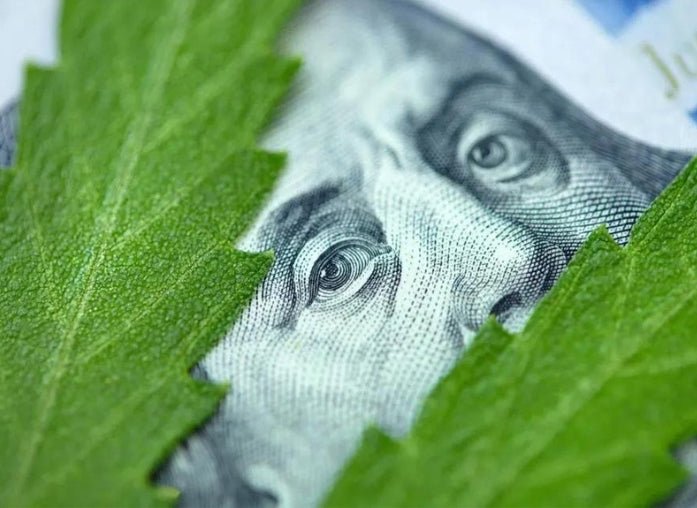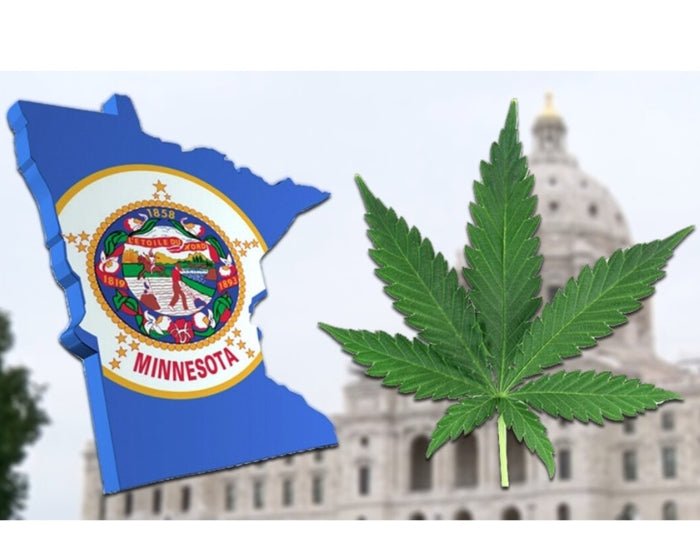As more and more countries strive to reduce their overall carbon footprint, hemp could become the super crop that saves the planet.

The Earth is getting hotter. Despite the feeble arguments against this scientific fact, mainly from the capitalist-driven fossil fuel industry, the data is overwhelmingly pointing to the fact that the planet's overall temperature is still rising at an alarming rate.
According to CarbonBrief.org, in 2022, the fifth-warmest year for the Earth's surface across various datasets, over 380 million people experienced their hottest single hourly temperature ever. Likewise, over the past decade, approximately 40% of the planet's surface endured its warmest temperature on record.
The consequences of the rise in global warming brought on by climate change have been costly and devastating both financially and in terms of human life. For example, the National Climate Assessment finds that the number of major hurricanes, heat waves, and heavy downpours has dramatically increased across the United States. In addition, the strength and intensity of these catastrophic weather events have increased as well.

While the weather occurrences with the most costly economic impact come in the form of hurricanes (Katrina, Sandy, and Harvey costing a combined $405 billion), other climate-influenced extreme events like the U.S. drought/heatwave of 2012 and the increased proliferation and spread of tornadoes across the country have also accounted for over $100 billion in damages since 2005.
America is one of many countries struggling with how to confront the growing threat provided by the long-term effects of climate change. From the increased strength and frequency of typhoons throughout the Pacific Rim to extreme drought in Africa and India, world governments are committing increasing resources to combat the leading cause of climate change - carbon emissions.
As first reported by HempToday, one of the primary beneficiaries of this new direction focused on sustainability and its impact on climate challenges could be the hemp industry. Along with its ability to produce health and wellness products like CBD, hemp has an almost unlimited potential to replace carbon-producing raw material pollutants contributing to global temperature rise in various industries, including bioplastics, building materials, and high-tech applications.
As these governments increase funding to assist various keystone industries in reducing the environmental impact of greenhouse gas emissions and establishing more sustainable long-term economies, significant money is on the table for those market sectors most capable of providing solutions to the question of how to cool the planet best.
For example, the European Union (EU) is expected to commit public and private funds totaling roughly €1 trillion ($1 trillion) through its European Green Deal between now and 2030 to help decrease carbon emissions by 55% with an ultimate goal of a climate-neutral economy by 2050.
In addition, the Biden Administration is proposing $2 trillion in various investments to attack the problems brought on by climate change in the United States. The Environmental Protection Agency (EPA), the Department of Energy (DOE), and the U.S. Department of Agriculture (USDA) are all expected to receive significant climate-related funding to reduce emissions by 50-52% from 2005 levels by 2030.
One of the most cost-effective ways for large polluters to address the stricter and stricter limits for the total amount of CO2 they may emit into the air is by purchasing carbon credits to offset their emission levels as they develop more eco-friendly and sustainable operations. A carbon credit is a type of permit, with one credit representing one ton of carbon dioxide removed from the atmosphere. If a company exceeds its allotted CO2 emission allowance, it can purchase these credits to compensate for the overage.
These credits are predominantly created through agricultural or forestry practices. However, a credit can be any project or activity that decreases, avoids, destroys, or captures emissions. Growing hemp is one of the best ways to produce those credits and could eventually end up being the first substantial revenue for hemp farmers struggling with a currently contracting market.
In recent years, the value of the carbon credits market has exploded exponentially. According to a report by the World Bank, pricing revenue from global carbon credits in 2021 increased by almost 60% over 2020 valuations to roughly $84 billion. Likewise, projections indicate that the market will be worth over $100 billion by 2030.
Along with the potential financial benefits generated through the carbon credit market, Biochar is emerging as another exciting revenue stream for the hemp industry. Biochar is produced by burning hemp stalks and can serve as a raw material for products that use solid forms of CO2, ranging from simple water and air filters to more complex items like batteries and fuel cells.

It appeals to manufacturers and farmers alike because it can flow into any existing processing framework, unlike hemp-based building materials and textiles, which face stiff and long-term competition from incumbents comprised of more traditional raw components.
Despite these opportunities, some significant challenges exist to getting farmers on board with the potential afforded through carbon credits and biochar. For most industry analysts and advocates, along with the significant public and private investment in the carbon credits sphere, world governments will also need to support a further expansion of trading schemes for farming to convince farmers of the actual financial benefits of adding hemp to their crop rotations.
There is also considerable pushback and criticism from the environmental community, who feel that using carbon credits is a cynical and shady way to address the real issues. They point out that using a carbon credit market system does not lower the overall amount of carbon emissions released by buyers. Instead, the amount is only offset, which enables companies a back door way to claim they are eco-friendly without reducing their emission levels. This process is called "greenwashing."
However, despite the imperfections provided by the carbon credits system, it is vastly preferable to the alternative of business as usual. Furthermore, the possibilities that biochar can ultimately provide for farmers and manufacturers may be the most environmentally and financially beneficial outcome for hemp and the planet.
As hemp continues to face more and more attacks from lawmakers and regulators over controversial end products like delta-8 THC, synthetic cannabinoids, and CBD, the opportunities afforded via the climate sustainability initiatives popping up across the globe may be the salvation and future hemp supporters have been searching to find. It is "high time" the world realized that hemp has the potential to heal the planet and sustain a multi-billion dollar industry simultaneously.







































